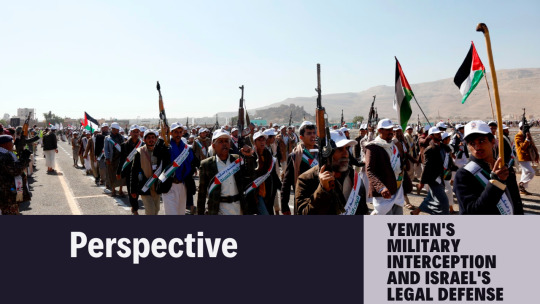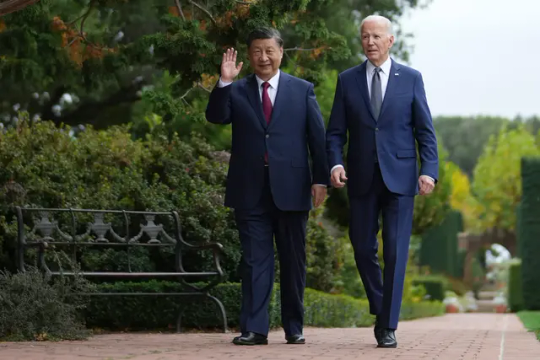#global affairs
Text
AN OPEN LETTER to THE PRESIDENT & U.S. CONGRESS
Enforce Leahy! No funding to IDF troops who’ve committed human rights abuses!
354 so far! Help us get to 500 signers!
I’ve just learned from Pro Publica that “a special State Department panel recommended months ago that Secretary of State Blinken disqualify multiple Israeli military and police units from receiving U.S. aid after reviewing allegations that they committed serious human rights abuses.” But Blinken has failed to act on the proposal. This in the face of growing international criticism of the Israeli military’s conduct in Gaza.
I’m livid about this. We cannot keep sending unconditional military aid to anyone, regardless of whom, if they are committing human rights abuses. We have Leahy laws to prevent it, and they are not being enforced here. It’s unacceptable.
The U.S. government needs to stop giving the Israeli government a blank check. Israel has a right to defend itself, of course, but the abuses described in Pro Publica’s report can’t be defined as self defense under anyone’s definition of the term. They’re abhorrent and our tax dollars mustn’t be spent on them. Thanks.
▶ Created on April 17 by Jess Craven
📱 Text SIGN PLLLRS to 50409
🤯 Liked it? Text FOLLOW JESSCRAVEN101 to 50409
#JESSCRAVEN101#PLLLRS#resistbot#Open Letter#Human Rights Abuses#IDF#Leahy Law#US Congress#President#Accountability#Foreign Policy#Military Aid#State Department#Secretary Blinken#Israel#Gaza Crisis#Humanitarian Crisis#Global Affairs#International Relations#Pro Publica#US Government#Political Action#Advocacy#International Law#Humanitarian Law#Justice#Peace Efforts#Activism#US Foreign Policy#War Crimes
5 notes
·
View notes
Text

🇷🇺🇨🇳 🚨
RUSSIA, CHINA AND BRICS PREPARE MASSIVE BLOW TO US DOLLAR DOMINANCE WITH LATEST CURRENCY MOVES
The BRICS trade organization, with the backing of the Russian Federation and the People's Republic of China, is preparing a major blow to U.S. dollar dominance in the global economy with an expanded payments system for trade between nations that will not be pegged to the U.S. dollar, according to reports in the Russian media.
The report, published in Russian news outlet Ria Novosti, stated that a new decentralized, blockchain-based international payment system, known as BRICS Pay, will make it possible to bypass Western sanctions while boosting the economic influence of BRICS, BRICS member states, as well as developing countries that trade with BRICS nations, while accelerating efforts to create a new international trade currency.
The United States sees these developments as a direct threat the U.S. dollar and its status as the World's reserve currency, according to the news outlet, with one of the main goals of the BRICS organization being the avoidance of International dependency on the U.S. dollar for trade outside the Western sphere of influence.
Already, 95% of trade between the Russian Federation and the People's Republic of China is conducted in Yuan and Rubles.
This kind of trade, conducted outside the U.S. dollar, "increases solvency and economic resilience to uncertainties and external shocks," says Shen Yi, the Chief of the BRICS Research Center at the Development Research Institute of Fudon University, as quoted by Ria Novosti.
“Objectively speaking, the diversified development of the international monetary and payment systems is consistent with the changing trends in the distribution of power and the general direction of evolution of the global system,” Yi noted in an interview with the Russian news outlet.
The news agency says the next step in this development is "our own system of international payments."
Recently, Russian Presidential Assistant, Yuri Ushakov, announced the intention of the BRICS commonwealth to create a payment system using a blockchain-based digital currency, with the purpose of developing a modern, effective payment service (BRICS Pay) intended to make international payments between countries "convenient, cost-effective, and most importantly, free from political influence."
"We need to completely move away from the peg [of international trade] to the dollar and Western instruments like [the] SWIFT [payments system]." Ushakov added.
Experts point to a BRICS payment system as a method of avoiding the sanctions of the United States and its Western allies, emphasizing that BRICS countries, and countries trading with BRICS member-states, will be able to perform mutual payments while avoiding the U.S. dollar, weakening the currency's role as the backbone of international payments and the world reserve currency.
The report also adds that a decentralized cryptocurrency payment system based on blockchain technology would be far more difficult to track, helping countries to avoid secondary sanctions while trading with nation-states under economic assault by the West like the Russian Federation.
Furthermore, a BRICS payment system will become a direct competitor to the Western-dominated and controlled SWIFT payment scheme, strengthening multipolarity in global finance and undermining the dictats of the United States and the European Union, while increasing the financial and political heft of the BRICS organization and its members.
According to Yaroslav Ostrovsky, a specialist in the strategic research department at Total Research, “If this project is implemented, its participants will switch to their own currencies in international payments, without the dollar and SWIFT terminals. At the same time, it is planned that countries outside the bloc will also be able to use the new system. The synergistic effect from such interaction will strengthen the position of BRICS in the global economic system."
Setting up such a payment system will take time, with financial experts suggesting it could take upwards of a year for debugging and implementing the payment scheme, while some experts say the system could become the basis for a future, single, BRICS supranational currency, and perhaps even a direct challenger the U.S. dollar's position as the world's reserve currency.
The new payment system, as well as any future BRICS currency, are a part of a process for which BRICS aims to become a global organization, trade union, and international financial association in direct competition with the Western-dominated international trade system, based on the U.S. dollar, that is currently wielded as a weapon against the adversaries of the West through its sanctions regime and it's control over International institutions.
#source
#photosource
@WorkerSolidarityNews
#russia#china#brics#russian news#china news#brics news#brics payment system#brics pay#russian federation#peoples republic of china#chinese news#international politics#global politics#russian politics#china politics#swift payment system#politics#news#geopolitics#world news#global news#international news#breaking news#current events#global affairs#international affairs#world politics#economics#global economy
4 notes
·
View notes
Text
Media psychology looks so interesting...
But is it practical
#College#Masters#I always have to think of practical#The more interesting it is the less practical it seems#Some psych more interesting than others#Psycholinguistics#Trauma psych#Trauma counselor w animal therapy emphasis?#All#Or#Graphic design#Vet tech#Childcare#I want to do sth w the mind!#That relates to writing!#Ideas!!!!!!!!!!#Big picture#Global affairs#International relations#Countries#Culture and history#Also be creative entrepreneur.#I dont want to just do 1 thing#1 focus perhaps#Which#Have farm.#Foster#Adopt#Travel#How now brown cow
2 notes
·
View notes
Text
youtube
#youtube#news#2023#Antony Blinken#Human Rights Report#Human Rights#Humanitarian Issues#Press Room#Civil Liberties#Politics#United States#Secretary of State#International Relations#Democracy#Freedom of Speech#Diplomacy#Update#World News#Foreign Policy#Global Affairs#Government#Current Events
0 notes
Text
youtube
#global assignment help#global affairs#global ambassador#global awakening#global advisory consulting#Youtube
0 notes
Link
Is water wet?
#Canada#evasion#obstruction#freedom of information#Foreign Affairs#Global Affairs#military exports#unaccountability#foot dragging
0 notes
Text
Trump Slams Senate Foreign Aid Bill, Proposes Bold Alternative Approach
Trump Slams Senate Foreign Aid Bill, Proposes Bold Alternative Approach
Trump Slams Senate Foreign Aid Bill, Proposes Bold Alternative Approach
In a bold and contentious move, former President Donald Trump has taken aim at the Senate’s proposed foreign aid bill, sparking a flurry of debate and speculation within political circles. With characteristic fervor, Trump criticized the traditional…

View On WordPress
#America First#Diplomacy#Donald Trump#Fiscal responsibility#Foreign aid bill#Global affairs#Loan proposal#Political debate#Senate#Taxpayer dollars
0 notes
Text
International politics, State power rankings
What’s this?
After WWII, the two countries that became the top ranked in terms of power rankings was the United States 1st, Soviet Union 2nd, however this doesn’t describe it properly. Let’s say I take a ruler and place the U.S. at the 12 inch mark, the Soviet Union would be at about 7 or 8, while the 3rd and below would start around 4 or 5 and lower. Big differences right? The U.S. has been the top dog for so long it feels untouchable, and this has lasted for almost 80 years, even after the fall of the Soviet Union until recently…
Around the 90s, major changes started happening in China that began increasing tensions with the United States. Once Mao died, the new leadership, younger and more sophisticated with international politics, foreign policy, business, etc started moving them towards growth in the realm of international dealings. Ironically, and to the annoyance of the U.S., used similar strategies that they did after WWII— The Marshall Plan.
Along with winning, the allies created the United Nations, international criminal court, World Bank (WB), International Monetary Fund (IMF), etc. The Marshal Plan was a U.S. program approved by Congress to fund rebuilding in war torn Europe, with the Soviet Union taking part of Germany and other Slavic countries. As part of these loans, there is a fine print that the IMF & WB also have for loans to countries for infrastructure. These include must already be or must switch to democracy. Well, China started their own program in the 90s called the Belt & Road initiative to help countries that do not want to change to democracy or do not qualify for the IMF or WB loans to build up their infrastructures. Infrastructures are things like building roads, bridges, hospitals, ports, transportation, airports, etc, generally the structures to make a country functional.
Oh, that really pissed off the US who cited requirements like allowing China to have bases in those countries as a move to take over the world— except, the U.S. does the same things! Hypocrisy lol. Anyway, in the beginning, like any new program there were kinks that needed to be worked out, which the U.S. exploited to continue demonizing the program. China didn’t take that bait and would just make adjustments based on suggestions other countries made, eventually winning over others including U.S. allies as to the validity of the program. Coupled with their advancements in business and other areas, the United States is fuming and this is what lead to the increase in tensions.
What does all this have to do with power ranks?
China is not the only country on the move up. India and Brazil are also moving up which has further made the U.S. nervous because they know these other countries have the populations to potentially become strong competition in the global world.
Political Scientists who study the global power balance have noted that this could and is slowly starting to shrink the lead the U.S. holds. The U.S. is very concerned what would happen if the other big countries of Russia, China, India, etc decided to collaborate. The only major thing keeping the U.S. at the top is the amount of nuclear weapons they have to threaten others with.
Add to this the growing unbalance in the global economy. The amount of invisible money, aka stocks, loans, etc, floating around between the western countries is creating an infinitely complex spiderweb that based on the shrinking period between market crashes and increases in inflation, it’s like walking on a burning tightrope. The country’s of China, Russia, India, and Brazil are insulated enough and have large enough populations that could weather a devastating recession that will destroy the west. If this happens, the next power switch won’t come from a war, but the outcome of western greed.
Further considerations in foreign affairs, is what’s happening in the Israel/Palestine wars, western meddling in the Middle East, Israel attacking other middle eastern countries, Turkey, Syria, Iran… the U.S. and allies are pushing a lot of buttons in the region… then the Russian/Ukraine, which is showing the ineptitude of the U.S. and allies, or aka UN to stop the very behaviors they were supposedly created to stop. If the middle Eastern countries were to also join in with Russia, China, India, etc, the west is fucked.
But is the US and allies really in the position to stop any such threats or is it a facade? Many other countries simply fear retribution for standing up against the U.S. With much upheaval and civil tensions happening in countries like the US and UK, authoritarian leaders on the rise even in the west, will such fractious and tenuous alliances hold or will their self-serving greedy policies do them in the end?
1 note
·
View note
Text
Yemen's Military Interception and Israel's Legal Defense
In today’s discourse, we dissect critical global issues, shining a spotlight on recent developments in Yemen and the ongoing Israeli-Palestinian conflict. The U.S. military’s interception of drones and anti-ship missiles launched by Houthis in Yemen marks a pivotal moment in the regional landscape. Simultaneously, in the context of the Israeli-Palestinian conflict, Israel’s legal defense strategy…

View On WordPress
#Ceasefire Efforts#Genocide Allegations#Global Affairs#Humanitarian Crisis#international relations#Israel-Palestine Conflict#Journalist Safety#Middle East#Military Intervention#United Nations#World Court#Yemen
0 notes
Text
🔮 | 𝕋𝕙𝕖 𝕎𝕠𝕣𝕝𝕕 𝔸𝕙𝕖𝕒𝕕 🛣
0 notes
Text
Accelerationism Unfolding: The Real-World Impacts of a Controversial Philosophy
Explaining #Accelerationism: A deep dive into how elite strategies might hasten societal change and our role in a rapidly evolving world.
As someone who values practicality, I often reflect on simpler times, before the pervasive dominance of the internet. My recent encounter with the term “accelerationism” in decentralized media struck a chord, prompting deep contemplation. To put it plainly, accelerationism is akin to driving a failing car engine to its limit to manage the aftermath of its inevitable failure. It’s a metaphor for…

View On WordPress
#accelerationism#capitalism#Chinese governance model#controlling the future#crisis management#decentralized media#economic dilemmas#elite strategy#four turnings theory#future of society#geopolitical trends#global affairs#global crises#intellectual movements#modern civilization#Nick Land#political ideologies#practical philosophy#pragmatist viewpoint#public welfare#radical thought#societal change#societal collapse#technological advancement
1 note
·
View note
Text
Jason is the person who made me interested in spy stuff and international intrigue in the 1st place so how could he not be central to my being
#adventures in odyssey#jason whittaker#yeah im not normal#spy#global affairs#geopolitics#a name not a number#and then i do fanfic#bc of him and aio#do more of that...#write#irl tho!!#dream#why can i not be#... well actual analyst at least
4 notes
·
View notes
Text
youtube
#youtube#militarytraining#usmilitary#State Department#Maltese Foreign Minister#Antony Blinken#International cooperation#Diplomatic talks#US Secretary of State#Historic meeting#Malta#International relations#United States#International diplomacy#Top diplomats#Foreign policy.#Diplomacy#Global affairs#Political meeting#Diplomatic meeting#Foreign relations#US-Malta relations#Government officials
0 notes
Text
Henry Kissinger: A Global Statesman of Controversy
Former Secretary of State Henry Kissinger's influential and controversial role in shaping global affairs under Nixon and Ford. Explore his achievements, controversies, and the legacy he left behind.
0 notes
Text
Is Xi Posturing for a Trump Victory?

In international relations, every accusation is a confession, and every policy pivot is a hedged bet. From that perspective, Xi's recent visit to California seems as much about reopening crucial backchannels of military communication as it does a pragmatic bet on an uncertain future.
Between China's position for peace in Ukraine, a ceasefire in Gaza, and now advancing export control agreements with the United States, Beijing seems to have been hard at work at cultivating the image of a peacemaker.
On Taiwan, President Xi Jinping tried to walk an equally enlightened line. While with reporters, he was not shy to reaffirm China's desire for reunification with Taiwan. Notably however, he decided to omit any mention of the use of force.
One is given the impression that China is trying to legitimize its projection as a global power by aligning its stances to seem like the adult in the room. This is not to make any normative judgement on what Beijing, or any other power is doing.
Rather, I think it's interesting to observe that the recent series of developments in US-China relations can be viewed through a lens of President Xi gearing up for another seismic upheaval in US politics. The most recent Sienna College poll now having shown a slight Trump lead after a neck-to-neck race with Biden for most of the last year, Xi may be wisely hedging his bets.
If Biden is reelected, Xi knows that he can largely expect more of the same, and in that regard he is already well seasoned - the export restrictions on semiconductor technology against China are more than a year old at this point.
However, with Trump, we can safely say for certain that not even the man himself knows what he is going to say or do next. In that view, Xi seems to be wisely hedging his bets against the future world order. Between continuing to emphasize economic cooperation with the United States and developing infrastructure projects in the African region under the Belt and Road Initiative - it seems that President Xi Jinping is working hard to build up Beijing's diplomatic currency by pre-positioning China as the sober adult in the new world order and betting on the likelihood that Trump is reelected in the next cycle.
Let us see if his bet pays off.
#world politics#politics#global affairs#international relations#global dialogue#dialogue#ir thoughts#ir movement#xi jinping#joe biden
0 notes